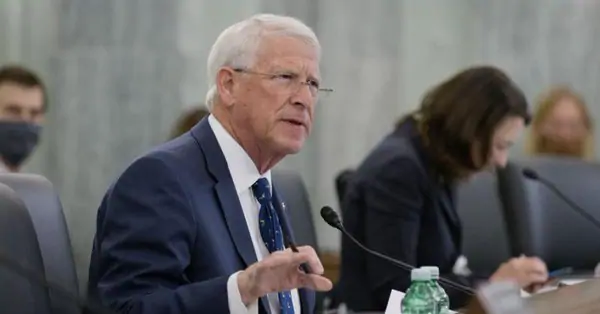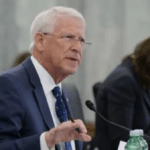Wicker: Champions water and defense bills
By U.S. Sen. Roger Wicker (R-Miss.)
Mississippi Poised to Benefit
Just before the Christmas holiday, Congress passed a series of important measures, one to shore up American waterways and another for national defense. Both bills have been sent to the president’s desk and will soon become law. They are categorized as “authorization” legislation, which grants permission for projects that will be funded later. Every state in the nation will benefit from these actions – including Mississippi.
Water Resources Development Act Supports Army Corps Projects
Our state is familiar with the value – and danger – of water. We enjoy our rivers, lakes, and shores, while we seek protection from all-too-common storms and floods. Congress regularly takes steps to improve the country’s waterways, ports, river systems, and flood protection projects. This month, we passed the latest bill to tackle those challenges – the 2024 Water Resources Development Act (WRDA).
I am a member of the Senate Committee on Environment and Public Works, which oversees the U.S. Army Corps of Engineers’ (Army Corps) water management projects. That role allows me to make sure WRDA addresses important needs across Mississippi.
WRDA authorizes work that will improve the way stormwater is handled in Hancock and Rankin counties. It paves the way for DeSoto County to get help with a wastewater program, which is sure to alleviate some of the area’s growing pains. Rankin County and the city of Jackson are poised to receive similar assistance with wastewater management. In Madison County, the Army Corps is set to develop a comprehensive water management program. Mississippi commerce will get a boost, too, as dredging work will ease navigation of the Tennessee-Tombigbee Waterway.
Several provisions will tackle flooding concerns. Farmers and landowners have suffered as the Hatchie River overflowed and impacted roads, bridges, and levees in Alcorn, Tippah, and Union counties. The legislation accelerates a study that is currently developing solutions for this dangerous situation. WRDA will also help restore flood risk management systems in DeSoto County.
The bill fosters collaboration between the Army Corps and Mississippi State University. It authorizes joint research that can be applied to water systems and natural disaster recovery.
National Defense Bill Recognizes Mississippi’s Service
The Constitution requires Congress to “provide for the common defense.” We do that primarily by passing an annual bill called the National Defense Authorization Act (NDAA). It authorizes the programs and policies that are then implemented by the Department of Defense. Congress approved that important legislation this month, overwhelmingly voting to raise pay for service members and to equip the armed forces with more of the tools it needs.
This year’s NDAA makes the most of Mississippi’s contributions to national defense. It will help Keesler Air Force base construct a new air traffic control tower, and Key Field Air National Guard Base will be able to move forward with new hangar and warehouse plans. Mississippians in Columbus and Tupelo are building munitions, helicopters, and advanced defense technology systems. The NDAA authorizes programs that support those workers. Our shipyards will continue humming in Gulfport and Pascagoula. The bill specifically backs work along the coast to build submarine parts, Navajo-class ships, and autonomous vessels. In this legislation, Congress also authorized even more collaboration between Mississippi universities and the armed forces.
There is a lot more to say about our state’s value to the U.S. military. Mississippians serve in uniform across the globe, and many civilians give back to our country through industry and research. When Congress returns to work in January, I expect to become the Chairman of the Senate Armed Services Committee, leading the senators who draft the NDAA. I will make sure that we continue recognizing the ways Mississippi supports American security.
Note: This article is the weekly Wicker Report from U.S. Sen. Roger Wicker, written by the Senator and provided by his office. Any opinions expressed here are that of the author and not necessarily that of this publication.





